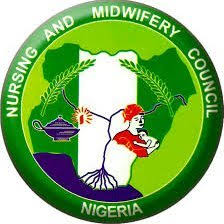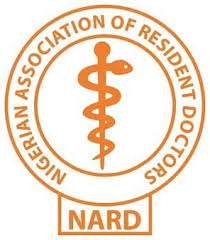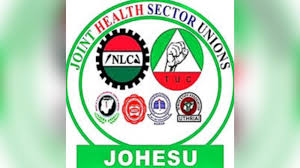The attention of the National Primary Health Care Development Agency (NPHCDA) has been drawn to newspaper publications that misrepresent recent activities in the NPHCDA and thereby provide an incorrect impression of the intentions of the Agency. The Executive Director, on behalf of the NPHCDA, wishes to clarify the Agency’s position on a number of ongoing initiatives for which the narrative in the public domain has been misconstrued.
1. The Federal Government Decree 29 of 1992 established the NPHCDA as a parastatal of the Federal Ministry of Health (FMoH), with the technical responsibility to provide oversight, and support for the implementation of Primary Health Care in Nigeria.
2. In recognition of the urgent need to change the Agency into a more transparent and accountable organisation, the Agency has been working to address financial management and programmatic challenges that negatively impacted its reputation, support and effectiveness, in the last few years. For instance, in order to help restore integrity to the Agency, the global consulting firm, McKinsey & Company was engaged to carry out an organisational assessment and to recommend changes that would re-establish the Agency as a focused, responsive and performance-driven organisation. In order to improve the financial management processes at the Agency, to make it trustworthy enough to handle local and donor funds, KPMG has been engaged to plug loopholes in the areas of procurement, finance and procedural audits.
 3. Various models of community-level health workers are recognized in the Minimum Package for Primary Health Care document of 2007. These include Voluntary Community Mobilizers (VCMs), Community Resource Persons (CORPS), Village Health Workers, etc. Such interventions are being duplicated in an uncoordinated way. In order to rapidly change overall results and also to prioritize emergency interventions in very low performing states, LGAs or communities in the country, the Agency has proposed the harmonization of community health worker initiatives at the community level, in the form of Community Health Influencers, Promoters and Service providers (CHIPS). This proposal has been presented to the Nigeria’s Governors forum, the Executive Secretaries of all State Primary Health Care Development Agencies, National leadership of the Nigerian Medical Association, Senate and House Committees on Health, and to development partners. There are plans to engage with several other stakeholders including traditional and religious leaders, medical and health workers’ associations, the academia, the private sector and CSOs. Their inputs are being harmonized to ensure that the best strategies for different contexts are agreed on. The effort to consult widely is aimed as seeking support of all stakeholders to harmonize the inefficient, vertical community-level interventions, and to transform existing structures into a more efficient and effective one, with a clear strategic framework to mobilize, train and finance these community level structures and to connect them to accountability structures such as the Ward Development Committees. The proposal seeks to support states to engage such individuals where they don’t exist, and to utilize those who are already available in any of the earlier mentioned forms where they exist.
3. Various models of community-level health workers are recognized in the Minimum Package for Primary Health Care document of 2007. These include Voluntary Community Mobilizers (VCMs), Community Resource Persons (CORPS), Village Health Workers, etc. Such interventions are being duplicated in an uncoordinated way. In order to rapidly change overall results and also to prioritize emergency interventions in very low performing states, LGAs or communities in the country, the Agency has proposed the harmonization of community health worker initiatives at the community level, in the form of Community Health Influencers, Promoters and Service providers (CHIPS). This proposal has been presented to the Nigeria’s Governors forum, the Executive Secretaries of all State Primary Health Care Development Agencies, National leadership of the Nigerian Medical Association, Senate and House Committees on Health, and to development partners. There are plans to engage with several other stakeholders including traditional and religious leaders, medical and health workers’ associations, the academia, the private sector and CSOs. Their inputs are being harmonized to ensure that the best strategies for different contexts are agreed on. The effort to consult widely is aimed as seeking support of all stakeholders to harmonize the inefficient, vertical community-level interventions, and to transform existing structures into a more efficient and effective one, with a clear strategic framework to mobilize, train and finance these community level structures and to connect them to accountability structures such as the Ward Development Committees. The proposal seeks to support states to engage such individuals where they don’t exist, and to utilize those who are already available in any of the earlier mentioned forms where they exist. 4. It is important to emphasize that the Minimum standard for Local Government Area health department is to have a Medical Officer of Health, and in the absence of one, a Community Health Officer as the team leader. These policies are well outlined in the Minimum Requirements for PHC document of 2007. Some states in Nigeria have gone ahead to ensure the availability of Doctors in their focal primary healthcare centres. This is laudable and needs to be encouraged. Where a state does not have such human resource or is unable to finance this, it should at least ensure that it has a Community Health Officer, 4 midwives, and 3 Community Health Extension workers in each PHC facility as a minimum number of personnel to provide PHC services.
5. At no time did the NPHCDA or any of its agents disclose plans of engaging community health extension workers TO REPLACE medical doctors operating in Primary Health Care facilities nationwide, as has been publicized in some sections of the media. The CHIPS workers are also not envisaged to replace CHEWS or JCHEWS. They will work in the communities, to help encourage women to attend antenatal care, take their children for routine immunization, encourage good nutrition, teach women simple interventions such as ORT, use of bed nets etc. We all know that in many communities, there is a dearth of workers who provide these useful services.
6. Since implementation of PHC initiatives are driven by states through the SPHCDAs, it is important to mention that the Agency, in its effort to provide high level support to states within the six zones of the country, has ensured that all zonal offices are headed by highly experienced Zonal Directors, as the organisation is repositioned to provide more direct support to states within each zone, and to use the manpower in zonal and state offices to carry out increased number of functions. These zonal and state offices will need the support of all stakeholders to achieve their mandates.
7. PHC is the fulcrum of our national health and has been acknowledged as key to the attainment of SDG3. One of the major reasons for the poor coverage with high impact lifesaving interventions is our weak health care system, especially PHC. Furthermore, there appears to be differential understanding of what PHC is all about. Part of our engagement with different stakeholders is to work towards a common understanding, as we seek to collectively fashion out a viable model that is implementable from the community level upwards.
8. Finally, as the NPHCDA transitions through the difficult moments it has seen in the last few years, we count on the understanding, patience and support of all well-meaning Nigerians. We will continue to engage with all stakeholders to change the poor health indicators that are an embarrassment to our country. At NPHCDA, we consider this responsibility an emergency, and we crave the indulgence of all stakeholders to identify, suggest and promote creative ways of changing the perineal bad indicators that constantly face us. We ask that you join us to make NPHCDA a responsible, transparent and effective organisation, and to develop effective strategies to transform the PHC landscape in the country.
9. On Behalf of the entire management and staff of the NPHCDA, please accept assurances of our highest regards.
Signed
Dr. Faisal Shuaib, MD, MPH, DrPH
Executive Director/Chief Executive
ABUJA: Training Schedule for Basic Life Support BLS, Pediatric Advanced Life Support (PALS), Advanced Cardiovascular Life Support ACLS, First Aid, CPR, AED
PORTHARCOURT: Training Schedule for Basic Life Support BLS, Pediatric Advanced Life Support (PALS), Advanced Cardiovascular Life Support ACLS, First Aid, CPR, AED
LAGOS: Training Schedule for Basic Life Support BLS, Pediatric Advanced Life Support (PALS), Advanced Cardiovascular Life Support ACLS, First Aid, CPR, AED




